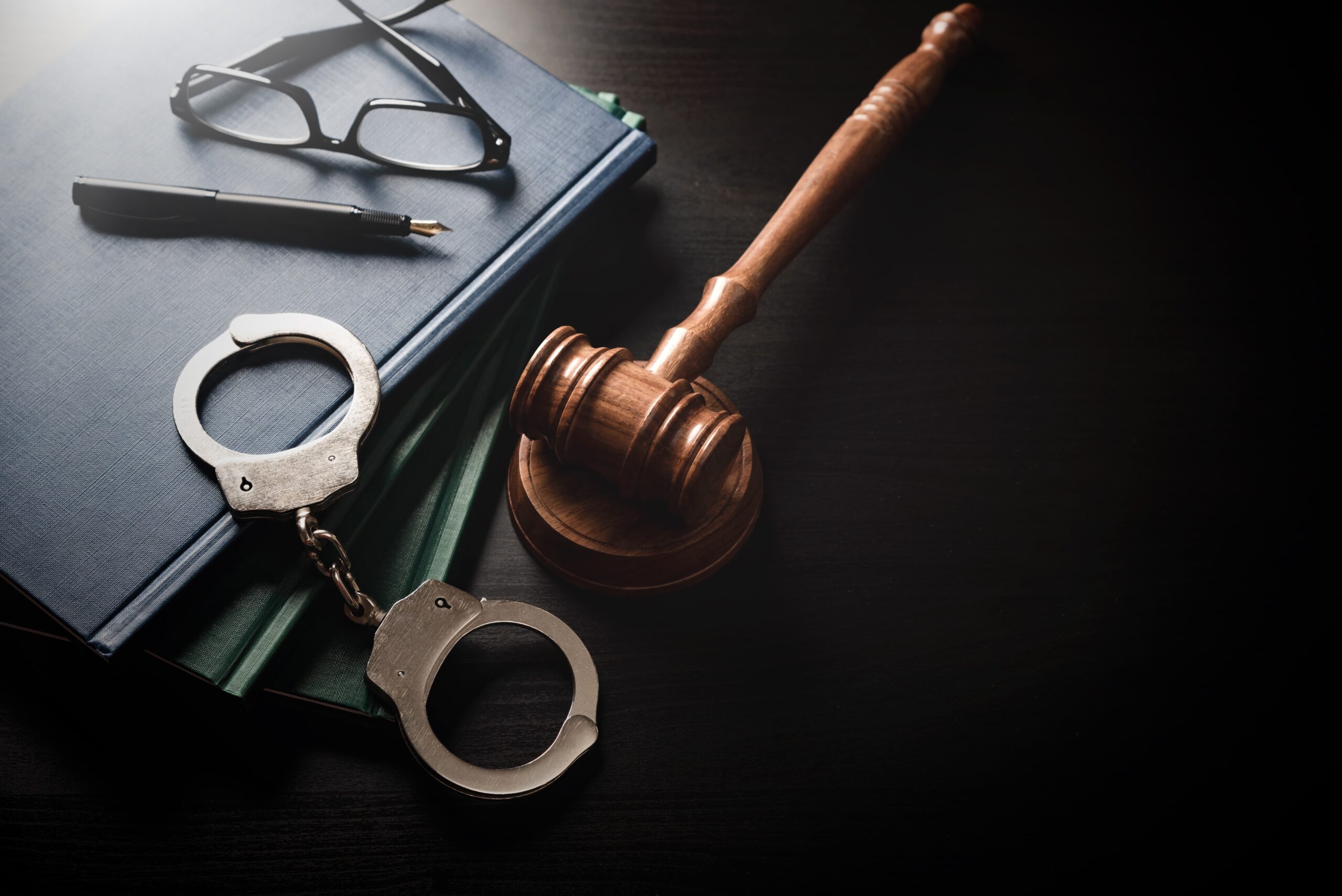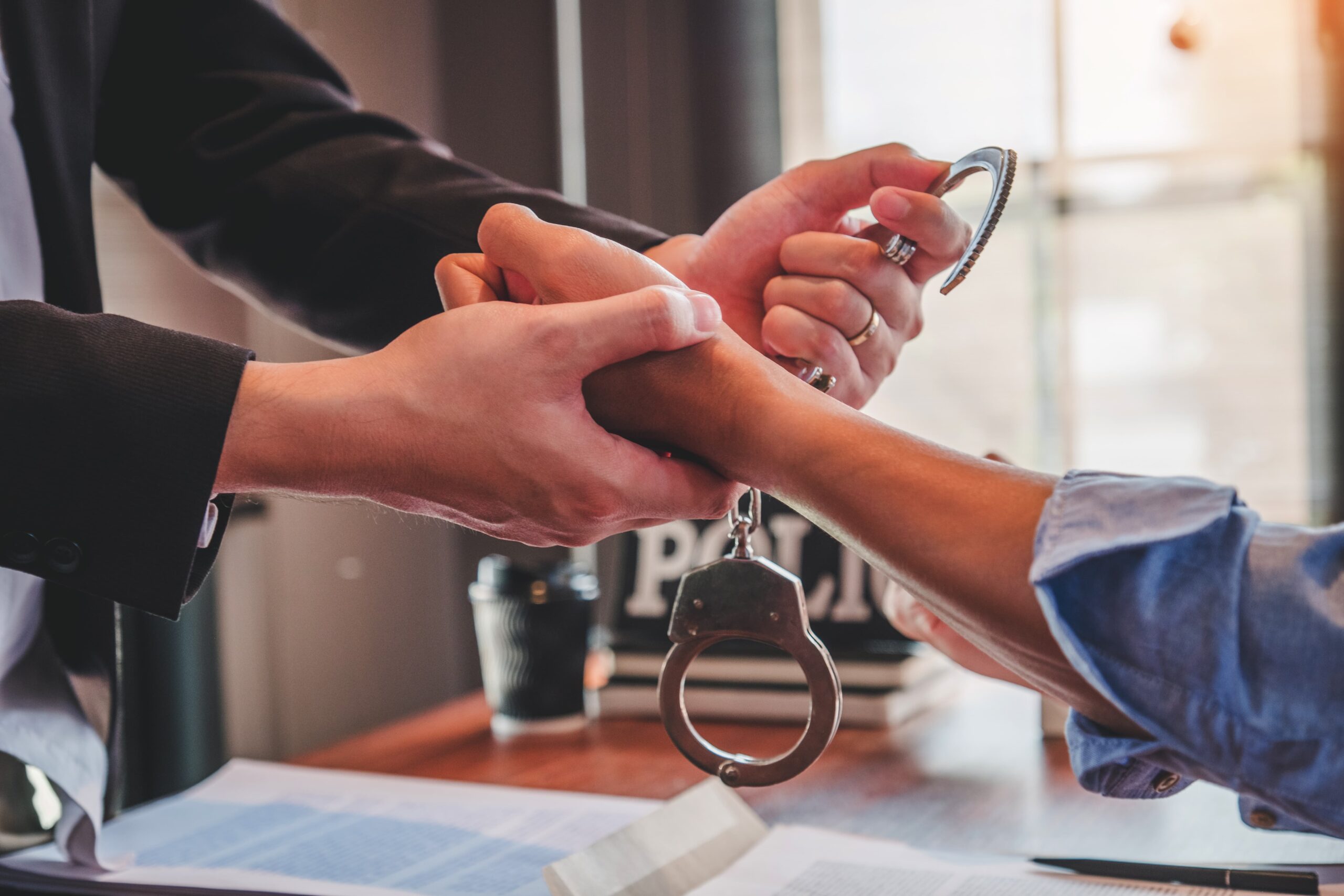South Beach, Miami is a place where law enforcement is highly visible and active. Whether you're visiting for a short getaway or you call Miami-Dade your home, finding yourself arrested on South Beach can turn a dream into a nightmare.
An arrest is a terrifying experience, regardless of the circumstances or the alleged offense. Knowing your rights and what steps to take immediately following an arrest in Miami-Dade County is not just advisable – it's absolutely crucial.
At Rossen Law Firm, we understand the stress, fear, and confusion that accompany an arrest. Our mission is to empower individuals by providing clear, actionable information about their legal rights and the complex criminal justice system.
If you or a loved one are arrested on South Beach, this comprehensive guide will walk you through the immediate aftermath, outlining your fundamental rights and the critical steps you should take to ensure the best possible outcome.
The Immediate Aftermath: From South Beach to Booking
An arrest typically begins with a law enforcement officer taking you into custody. Once you are arrested, you will likely be transported to a central booking facility in Miami-Dade County. This process involves:
- Processing and Paperwork: Officers will take your personal belongings, conduct a search, take your fingerprints, and a mugshot. This officially enters you into the criminal justice system.
- Warrant Check: They will also check for any outstanding warrants for your arrest.
- Initial Holding: You will be placed in a holding cell while awaiting further processing or a bond hearing.
This is a disorienting time. Remember, anything you say or do during this period can impact your case.
Your Fundamental Rights After an Arrest in Miami-Dade
The U.S. Constitution, through its Fourth, Fifth, and Sixth Amendments, provides critical protections for individuals facing arrest and criminal charges. In Florida, these rights are rigorously upheld, but it's up to you to assert them.

1. The Right to Remain Silent (Fifth Amendment)
The Fifth Amendment is perhaps your most powerful right upon arrest. Police officers will often try to question you to gather information, build their case, or even elicit a confession. Remember:
- Anything you say can and will be used against you in a court of law. Even seemingly innocent statements can be twisted or misinterpreted.
- Politely and clearly state: "I wish to remain silent." or "I am exercising my right to remain silent."
- Do not engage in conversations, even small talk. Once you clearly state that you are exercising your right to remain silent, police must immediately stop interrogating you. If they continue to ask questions, you must continue to state, “I am exercising my right to remain silent and I want a lawyer.”
- Silence cannot be used against you: Your refusal to speak cannot be used as evidence of guilt in court.
Many people mistakenly believe that if they just explain their side of the story, they can clear things up. This is rarely the case. The police are not there to help you, but to gather evidence for prosecution. Let your attorney speak for you.
2. The Right to an Attorney (Sixth Amendment)
Along with your right to remain silent, you have the right to have an attorney present during any questioning, as stated in the constitution.
- Request an attorney immediately: As soon as possible, state: "I want to speak with an attorney." or "I need a lawyer."
- Do not answer questions without your lawyer present: Once you request an attorney, police are prohibited from questioning you until your lawyer is present. Do not answer any questions, sign any documents, or agree to any searches until you have spoken with your counsel.
- Be persistent: Sometimes, officers may try to discourage you from asking for a lawyer. Remain firm in your request.
- You don't have to be able to afford an attorney: If you cannot afford a lawyer, one will be appointed to you by the court.
Calling an attorney as soon as possible is paramount. An experienced criminal defense attorney can guide you through the process, protect your rights during questioning, and begin building your defense from the outset.
3. The Right to Know the Charges Against You
.Upon arrest, you have the right to be informed of the reason for your arrest and the specific charges being brought against you. While the initial arrest may be based on probable cause, formal charges are typically filed later.
Critical Steps to Take After an Arrest
Beyond asserting your constitutional rights, there are practical steps you should take to protect yourself and your case.
1. Stay Calm and Do Not Resist
Being arrested is frightening, and it's natural to feel angry, frustrated, or anxious. However, resisting arrest, even if you believe it's unlawful, can lead to additional charges (e.g., resisting arrest with or without violence) and make your situation significantly worse.
- Comply with lawful commands: Follow officers' instructions, even if you disagree with them. Do not argue or make physical contact.
- Do not physically resist: Allow officers to handcuff you and place you in their vehicle.
- Your lawyer will challenge illegal actions later: Any violations of your rights by law enforcement can and should be addressed by your attorney in court, not by resisting at the scene.
2. Do Not Make Statements to Anyone (Except Your Lawyer)
This cannot be stressed enough. From the moment you are arrested until you speak with your attorney, assume that anything you say can be used against you. This includes:
- Statements to police: Even seemingly innocent remarks.
- Conversations with cellmates: There's no confidentiality here, and jailhouse informants exist.
- Phone calls: While you are entitled to make a phone call, understand that most calls from jail (except those to your attorney) are recorded and can be used as evidence. Be extremely careful what you say to friends or family.
Your attorney is the only person with whom you can speak freely and confidentially without fear of your words being used against you.
3. Contact a Criminal Defense Attorney Immediately
This is the most crucial step you can take. The moments immediately following an arrest are critical. An attorney can:
- Advise you on your rights: Ensure you understand and exercise your right to remain silent and your right to counsel.
- Prevent self-incrimination: Intervene to stop police questioning and protect you from making damaging statements.
- Begin investigating your case: Start gathering information, witness statements, and evidence from the outset.
- Represent you at your First Appearance (Bond Hearing): In Florida, a First Appearance hearing is typically held within 24 hours of your arrest. At this hearing, a judge will review the probable cause for your arrest, formally inform you of the charges, and determine your bond amount. An attorney can argue for your release on little to no bond, or advocate for a lower bond, increasing your chances of getting out of jail while your case is pending.
- Navigate the booking process: Provide guidance on what to expect and ensure proper procedures are followed.
- Challenge the arrest: If the arrest was made without probable cause, your attorney can file motions to suppress evidence or dismiss the charges.
Even if you believe the charges are minor, having an attorney from the very beginning can significantly impact the outcome. Early intervention by an experienced lawyer can often lead to:
- Charges being dropped or reduced.
- Negotiated plea agreements.
- Entry into diversion programs, avoiding a criminal record.
- A stronger defense if the case proceeds to trial.
4. Document Everything You Remember
While the experience is stressful, try to remember as many details as possible about your arrest. This information will be invaluable to your attorney.
- Date, time, and location of the arrest.
- Names or badge numbers of arresting officers.
- What was said by officers and by you.
- Any searches conducted (of your person, vehicle, or belongings).
- Any injuries you sustained.
- Names or contact information of any witnesses.
- The specific charges you were told you were facing.
Write these details down as soon as you are able to do so privately.
The Miami-Dade Criminal Justice Process: Beyond the Arrest

After your arrest and First Appearance, your case will move through the Miami-Dade criminal justice system. Understanding these stages can help you prepare.
- Formal Charges (Information/Indictment): The State Attorney's Office reviews the evidence and decides whether to file formal charges. Under Florida Rule of Criminal Procedure 3.133, if you are in jail, the prosecutor generally has 21 days to file charges. This timeline can differ if you are released on bond.
- Arraignment: This is your formal court appearance where you enter a plea (guilty, not guilty, or no contest). Your attorney can often handle this for you if you've been released on bond.
- Discovery: This is the exchange of information and evidence between the prosecution and your defense attorney. Your attorney will review all evidence against you, including police reports, witness statements, and any surveillance footage.
- Pre-Trial Motions and Hearings: Your attorney may file motions to suppress evidence (if it was obtained illegally), dismiss charges, or challenge procedural errors.
- Negotiations (Plea Bargaining): Your attorney will engage in negotiations with the prosecutor to explore potential plea agreements that could involve reduced charges, probation, or alternative sentencing.
- Pre-Trial Intervention (PTI) / Diversion Programs: For eligible first-time offenders, especially for certain non-violent offenses, these programs can offer an opportunity to avoid a criminal conviction by completing specific requirements (e.g., community service, classes). Successful completion leads to dismissal of charges.
- Trial: If a plea agreement cannot be reached, or if you choose to fight the charges, your case will proceed to trial.
- Sentencing: If you are convicted (either through a plea or at trial), the judge will impose a sentence, which could include fines, probation, or prison.
Navigating these stages without experienced legal counsel is incredibly challenging and puts your freedom and future at significant risk.
South Beach Criminal Defense FAQs
How do I get someone out of jail after a South Beach arrest?
To get someone out of jail, you must typically post bail.
A judge sets the bail amount at the First Appearance hearing, which occurs within 24 hours of the arrest. You can pay the full amount to the court, which is refundable at the case's conclusion, or you can pay a non-refundable fee (usually 10%) to a bail bond agent who will post a bond for the full amount.
An attorney can argue for a lower bail amount or for release without bond at the hearing.
I’m a tourist who was arrested in Miami. Do I have to return to court?
Yes. If you face criminal charges in Florida, you must appear for all required court dates. Failure to appear will result in a bench warrant for your arrest.
A local criminal defense attorney can help, as they can often appear on your behalf at certain pre-trial hearings, saving you the expense and inconvenience of traveling back to Florida for every appearance.
What is the difference between being detained and being arrested?
- Detention is a temporary stop by law enforcement for investigation based on reasonable suspicion. During detention, police can ask you questions, but you are not obligated to answer.
- An arrest is a formal seizure where police take you into custody because they have probable cause to believe you committed a crime. An arrest triggers your full Miranda rights, including the right to an attorney and the right to remain silent during a custodial interrogation.
Can I seal or expunge my South Beach arrest record?
In Florida, you may have your arrest record sealed or expunged if the charges were dropped, dismissed, or if you were acquitted at trial.
For some offenses, you may also qualify you received a withhold of adjudication.
Eligibility depends on the specific offense and your prior criminal history. The process requires filing a petition with the court, and you must first obtain a Certificate of Eligibility from the Florida Department of Law Enforcement (FDLE).
An attorney can determine your eligibility and manage the complex petitioning process. For more information, you can visit the FDLE's website on sealing and expunging records.

Why Choose Rossen Law Firm After Your Arrest?
An arrest on South Beach isn't just a legal problem; it's a personal crisis that can send shockwaves through every aspect of your life. The repercussions of a criminal conviction are far-reaching and devastating.
We understand that even good people can find themselves in challenging circumstances. We recognize the profound impact an arrest can have and approach every case with empathy, discretion, and an unwavering commitment to your defense.
Our team of skilled criminal defense attorneys isn't just familiar with the law. We know the judges, we understand the local police procedures, and we are adept at anticipating the strategies the prosecution will employ.
What truly sets us apart is our invaluable insight. Our firm is led by a former prosecutor who brings a unique, insider's perspective to every case. This means we don't just react to the prosecution's moves; we often predict them.
We understand how charges are built, where the weaknesses in the state's case lie, and, crucially, how to dismantle their arguments piece by piece. This strategic advantage allows us to craft a robust, proactive defense designed to protect your interests from every angle.
When you choose Rossen Law Firm, you gain a dedicated advocate relentlessly committed to:
- Protecting your constitutional rights from the absolute first moment of arrest. We act swiftly to ensure law enforcement adheres to proper procedure and that any evidence obtained improperly is challenged and excluded.
- Providing an aggressive and strategic defense meticulously tailored to your unique circumstances. We don't believe in one-size-fits-all solutions. We meticulously investigate every detail, uncover all facts, and build a defense specifically designed for your individual situation.
- Communicating clearly and consistently with you throughout the entire legal process. We know that uncertainty breeds anxiety. You will never be left in the dark. We will explain every step, answer all your questions, and ensure you are fully informed to make critical decisions about your future.
- Fighting tirelessly for the absolute best possible outcome. Our unwavering goal is to achieve a result that minimizes the impact on your life. Whether that means securing a complete dismissal of charges, negotiating a significant reduction in charges, or achieving a favorable plea agreement that avoids harsh penalties and a criminal record. We will pursue every avenue to protect your freedom and future.
If you or a loved one has been arrested on South Beach, do not attempt to handle the Miami-Dade criminal justice system alone. Every hour that passes without skilled legal representation can jeopardize your defense.
We are available to provide immediate guidance, answer your urgent questions, and begin the critical work of building your defense. Your freedom, your reputation, and your future depend on making the right call.
Contact Rossen Law Firm at (754) 206-6200 for a confidential consultation immediately.